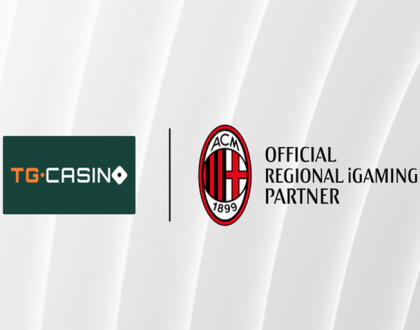Social Responsibility in European iGaming

Just as the popularity of online gambling continues to rise, so does the importance of Social Responsibility within the European iGaming industry. With millions of players engaging in online betting and gaming activities, it is crucial for operators to prioritize responsible gambling practices to protect vulnerable individuals and promote a safe gaming environment. European countries are taking proactive steps to regulate the iGaming sector and enforce strict regulations to ensure operators comply with ethical standards and consumer protection laws.
The European iGaming Landscape
Overview of iGaming in Europe
The iGaming industry in Europe has seen exponential growth in recent years, making it one of the most lucrative markets globally. With advancements in technology and changing regulations, the landscape of iGaming has evolved significantly. From online casinos to sports betting and skill games, the European market offers a wide range of opportunities for both operators and players.
Key Markets and Regulatory Frameworks
Markets in Europe such as the United Kingdom, Malta, Gibraltar, and Sweden have established themselves as key players in the iGaming industry. These markets boast robust regulatory frameworks that ensure consumer protection, responsible gaming measures, and fair gameplay. The European iGaming sector is known for its diversity, with each country having its unique licensing requirements and regulations.
Overview: The European iGaming landscape is a complex network of markets with varying regulations and player demographics. Understanding the regulatory frameworks and key markets is crucial for operators looking to establish a presence in Europe. Compliance with regulations and a focus on responsible gaming are paramount for success in this competitive industry.
Defining Social Responsibility in iGaming
Even in the rapidly evolving world of iGaming, social responsibility remains a critical aspect. It encompasses various practices and initiatives that iGaming operators must adhere to in order to ensure the well-being of their customers, employees, and the community at large.
Ethical Standards and Practices
One of the key elements of social responsibility in iGaming is maintaining high ethical standards and practices. This includes promoting fair play, ensuring transparency in operations, and upholding data protection laws. By adhering to these ethical principles, iGaming operators can build trust with their customers and create a safer gaming environment for all.
The Role of Social Responsibility in Consumer Protection
Ethical standards in iGaming play a crucial role in consumer protection. Operators must implement measures to prevent problem gambling, such as offering self-exclusion programs and limiting advertising targeting vulnerable individuals. By prioritizing consumer protection, operators can mitigate the risks associated with excessive gambling and ensure a more sustainable industry in the long run.
Another important aspect of social responsibility in iGaming is promoting responsible gaming practices and providing resources for players who may be struggling with addiction. By offering tools for self-assessment and access to support groups, iGaming operators can help prevent and address problem gambling behaviors.
Regulatory Approaches to Social Responsibility
Licensing Requirements and Compliance
Many European countries have implemented strict licensing requirements to ensure iGaming operators uphold social responsibility standards. These requirements typically include detailed background checks on the company’s owners and key personnel, as well as financial stability assessments. Operators are also required to demonstrate their commitment to responsible gaming practices, such as offering self-exclusion options, set deposit limits, and providing access to support services for problem gamblers.
Monitoring and Enforcement Mechanisms
An necessary aspect of regulatory approaches to social responsibility in European iGaming is the establishment of robust monitoring and enforcement mechanisms. Regulatory bodies closely monitor operators’ activities to ensure compliance with licensing requirements and responsible gaming standards. In case of violations, these bodies have the authority to impose penalties, including fines, suspension, or revocation of licenses, to hold operators accountable for their actions.
Social responsibility is prioritized in the iGaming industry, with regulators emphasizing the protection of vulnerable players and prevention of problem gambling. Regular audits and inspections are conducted to assess operators’ adherence to responsible gaming practices and policies.
For instance, operators found to target minors or engage in fraudulent activities face severe consequences. This approach aims to create a safe and transparent iGaming environment that prioritizes player well-being and upholds ethical standards in the industry.
Corporate Initiatives and Best Practices
Voluntary Measures by iGaming Companies
With the growing concern for social responsibility in the iGaming industry, many companies have taken voluntary measures to contribute positively to society. These initiatives go beyond regulatory requirements and demonstrate a commitment to ethical business practices. Companies have implemented measures such as charitable donations, community outreach programs, and environmental sustainability efforts to enhance their corporate social responsibility.
Responsible Gambling Features and Tools
Companies operating in the iGaming sector have been proactively addressing the issue of responsible gambling by incorporating various features and tools on their platforms. These tools aim to promote safe and responsible gaming behavior among players by allowing them to set limits on their deposits, time spent on the platform, and losses. Some companies also provide access to self-assessment tests and support resources for individuals struggling with gambling addiction.
Understanding the importance of responsible gambling features and tools is crucial for ensuring the well-being of players. By offering these resources, iGaming companies can help mitigate the risks associated with problem gambling and promote a safe gaming environment for all users.
The Impact of Technology on Social Responsibility
Innovations in Safe Gaming
To adapt to the fast-paced technological advancements in the iGaming industry, operators have implemented various innovations to promote safe gaming practices. One of the most significant advancements is the use of artificial intelligence and machine learning algorithms to detect patterns of problem gambling behavior. These technologies can analyze vast amounts of data in real-time to identify players who may be at risk and intervene before it escalates.
Data Protection and Player Privacy
Another necessary aspect of social responsibility in European iGaming is ensuring data protection and player privacy. With the growing concern over data breaches and misuse of personal information, iGaming operators have implemented stringent measures to safeguard player data. One of the key strategies is the use of encryption technologies to secure transactions and protect sensitive information from unauthorized access.
Data protection laws such as the GDPR have also played a crucial role in shaping how iGaming companies handle and store player data. Operators are now required to obtain explicit consent from players before collecting their data and must adhere to strict guidelines on data retention and processing.
Stakeholder Involvement and Collaborative Efforts
Now more than ever, European iGaming companies are recognizing the importance of stakeholder involvement and collaborative efforts in fostering social responsibility within the industry. By partnering with non-profit organizations and engaging with the gaming community, companies can make a positive impact and ensure that responsible gaming practices are prioritized.
Partnerships with Non-Profit Organizations
On their journey towards promoting responsible gaming, European iGaming operators are forming strategic partnerships with non-profit organizations that specialize in addiction prevention, mental health support, and education on responsible gambling. These partnerships often involve financial contributions to support the organization’s initiatives, as well as collaboration on awareness campaigns and resources for players. By working together, iGaming companies and non-profit organizations can create a more supportive and responsible gaming environment for all stakeholders involved.
Engaging with the Gaming Community
NonProfit
On another level, European iGaming companies are actively engaging with the gaming community to promote responsible gaming practices and raise awareness about the potential risks associated with gambling. By organizing community events, sponsoring educational programs, and hosting webinars, iGaming companies can establish strong connections with players and provide them with the critical information they need to gamble responsibly.
with these collaborative efforts, European iGaming companies are demonstrating their commitment to social responsibility and setting a positive example for the industry as a whole. By working together with stakeholders and leveraging their resources, companies can effectively address the challenges posed by problem gambling and ensure a safer and more enjoyable gaming experience for all players.
Challenges and Future Directions
Balancing Profit and Social Responsibility
Challenges in the iGaming industry revolve around finding the delicate balance between profitability and social responsibility. Operators are constantly faced with the challenge of maximizing revenues while ensuring that their practices do not contribute to problem gambling or other negative social consequences. Striking this balance requires a deep commitment to implementing robust responsible gambling measures and policies.
Anticipating Regulatory Changes
Challenges in anticipating regulatory changes pose a significant hurdle for iGaming operators. The landscape of regulations governing the industry is constantly evolving, with new laws and guidelines being introduced frequently. Staying ahead of these changes and ensuring compliance with varying legal requirements across different European markets is a complex task that requires a proactive approach.
Anticipating regulatory changes involves closely monitoring legislative developments, engaging with regulatory authorities, and adapting internal processes to ensure ongoing compliance. Failure to anticipate and adapt to regulatory changes can result in hefty fines, reputational damage, and even the loss of operating licenses.
Summary of Key Findings
Any successful iGaming operator must prioritize responsible gambling practices and compliance with evolving regulations to ensure long-term sustainability in the European market. Striking a balance between profitability and social responsibility is crucial for maintaining a positive brand image and fostering trust among stakeholders.
The Path Forward for Social Responsibility in European iGaming
European iGaming operators must continue to embrace a proactive approach to social responsibility, investing in innovative tools and technologies to promote responsible gambling and mitigate harm. Collaborating with industry peers, regulators, and experts to share best practices and drive positive change is vital for advancing the evolution of social responsibility in the iGaming sector.
By prioritizing player protection, promoting transparency, and fostering a culture of responsible gaming, European iGaming operators can build a sustainable future that prioritizes the well-being of their customers and the wider community.
Findings
The findings emphasize the critical importance of proactive measures in promoting social responsibility and ensuring compliance in the dynamic landscape of European iGaming. By staying abreast of regulatory changes, implementing robust responsible gambling practices, and fostering a culture of transparency and accountability, operators can navigate the challenges ahead and secure a successful future in the industry.
Recommended Posts

AC Milan & TG.Casino iGaming Partnership
May 6, 2024

Unveiling iGaming Secrets – Tips for Success
May 6, 2024

Kambi Group plc Repurchases 55,000 Shares
May 6, 2024
